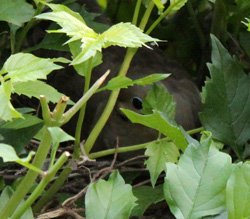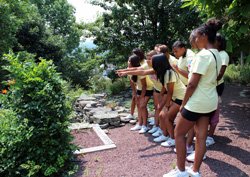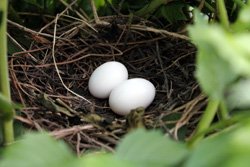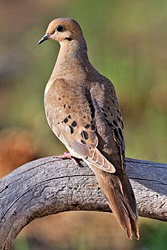Thinking About Life on a Day of Death
Written by Tony Mussari
Edited by Kitch Loftus-Mussari
Copyright 2012, Mussari-Loftus Associates, LTD
The Face of America Project
faceofamericawps.com
All Rights Reserved
Death is something you see very clearly with eyes in the center of your heart.Thomas Merton
July 20, 2012, is a day Americans will remember; not for its beauty, not for its poetry, not for its opportunity. It’s a day we will remember for its emptiness, its horror, its viciousness and its senseless death. It’s the day Aurora, Colorado, became a part of the lexicon of mass murder.
day we will remember for its emptiness, its horror, its viciousness and its senseless death. It’s the day Aurora, Colorado, became a part of the lexicon of mass murder.
In our hometown, we know something about mass murder. On September 25, 1982, a 40-year-old prison guard killed 13 people, including five of his children. Kitch knows that story like the back of her hand. She covered virtually every aspect of the story.
In my mind’s eye, the only difference between the tragedy in Wilkes-Barre, Pennsylvania and Aurora, Colorado, is 30 years and a growing list mass murders that produce heartache and heartbreak in ways no one can accurately express.
One of the worst things about experiencing a day like this is the feeling of helplessness. You see the carnage. You sense the incredible pain. You want to help. You want to stop the hurt and the madness, but you are nothing more than a stunned spectator with good intentions. A mixture of curiosity and fear attracts one to the story. A feeling of disbelief, disgust and numbness makes one look for a place to find peace and comfort.
The words of Edvard Munch apply:
You know my picture, ‘The Scream?’ I was stretched to the limit—nature was screaming in my blood…
Changing the Conversation
I would like to begin this day after the carnage with something positive and uplifting for people who have been following our Face of America adventure. I would like to change the conversation to  something more beautiful and joyful.
something more beautiful and joyful.
While America was expressing its outrage and trying to deal with the depravity of the Dark Knight of Aurora, Colorado, a miracle of nature was happening right before our eyes in the entrance to our garden.
In early July, a Mourning Dove took up residence in a trumpet vine covering a banister on one of the staircases in Windsor Park. Kitch and I have had the good fortune to watch this miracle of life unfold from the building to the crude nest to the laying of the first egg, then the second and the inspirational nurturing that has followed.
Several times a day we visit the location in a quiet, non-threatening and respectful way to get a glimpse of the nest and the dutiful dove that is always there. We come with curiosity and concern. We leave with a sense of awe. On Wednesday, 36 hours before the dark clouds covered our country with grief, we introduced 10 students from North Plainfield, New Jersey, to the miracle in our garden. The accompanying picture records this joyful moment.
our garden. The accompanying picture records this joyful moment.
A little research helped us to fill in the blanks and better understand the process.
Those who study these birds tell us “there is no more gentle and pleasant bird than the Mourning Dove. They are a social bird that enjoys being close to humans as long as they are soft spoken and do not get too close.”
Doves symbolize peace, goodwill and friendship. They are monogamous. When we see a dove in the garden at a birdfeeder or birdbath, we know that its mate will always be close by.
We did not know that both parents incubate and care for their squabs, and they both produce milk for their babies.
The female dove builds the nest. The male dove provides the materials. Alison McColllum gave her readers a wonderful description of the nest:
 “A bird’s nest is a complex construction if ever there was one. Depending on the species, they can be extremely elaborate like the condolike nest that Quaker parrots build on power line poles or a basic structure like made in a tree by Mourning doves. They work with what they have and respect the world around them. The nests are environmentally responsible and over time disappear. They live with the land instead of on it as we humans tend too. Also they are able to leave behind the nest and explore the world without having to stay with their possessions. They are free and able to rebuild when tragedy strikes.”
“A bird’s nest is a complex construction if ever there was one. Depending on the species, they can be extremely elaborate like the condolike nest that Quaker parrots build on power line poles or a basic structure like made in a tree by Mourning doves. They work with what they have and respect the world around them. The nests are environmentally responsible and over time disappear. They live with the land instead of on it as we humans tend too. Also they are able to leave behind the nest and explore the world without having to stay with their possessions. They are free and able to rebuild when tragedy strikes.”
 period, the male works the early shift from morning to afternoon. The female takes her place on the eggs for the remainder of the day and at night. The two weeks after birth the mother and father will feed the squabs a diet of pigeon’s milk for three days, then they will adds seeds. After fledging takes place, the father will continue his watch and support for two weeks.
period, the male works the early shift from morning to afternoon. The female takes her place on the eggs for the remainder of the day and at night. The two weeks after birth the mother and father will feed the squabs a diet of pigeon’s milk for three days, then they will adds seeds. After fledging takes place, the father will continue his watch and support for two weeks.
If all goes according to nature’s plan, our little corner of the world will have two more Mourning Doves to enhance the sights and sounds the garden. This will happen at the same time the case of the Dark Knight of Aurora is make its way through the Colorado court system. We will be watching both of these scenes; one with horror, and disgust, the other with admiration and enjoyment.
Maybe that’s the way life is supposed to be. When things are difficult, and everything seems to be in doubt, we look to nature, its beauty, its elegance, its majesty to give us hope that tomorrow will be better than today.
are difficult, and everything seems to be in doubt, we look to nature, its beauty, its elegance, its majesty to give us hope that tomorrow will be better than today.
You can be sure of one thing. While we are being restored in our garden, we will be offering living prayers for comfort, healing and rejuvenation for the victims, family members and friends who are hurting in Aurora. They will need the peace, good will and friendship of an army of Mourning Doves to put their lives back in order.
Of this they can be sure, they will receive this and much more from people all over America who want to ease their pain.
To rearrange the words of Bernard Beckett; Living is defined by dying, and the death and destruction we experienced on July 20 is not the America we want for ourselves, our children or our grandchildren. We can and we must find a way to bring the spirit of the Mourning Dove to every corner of our world.
Please provide feedback to: